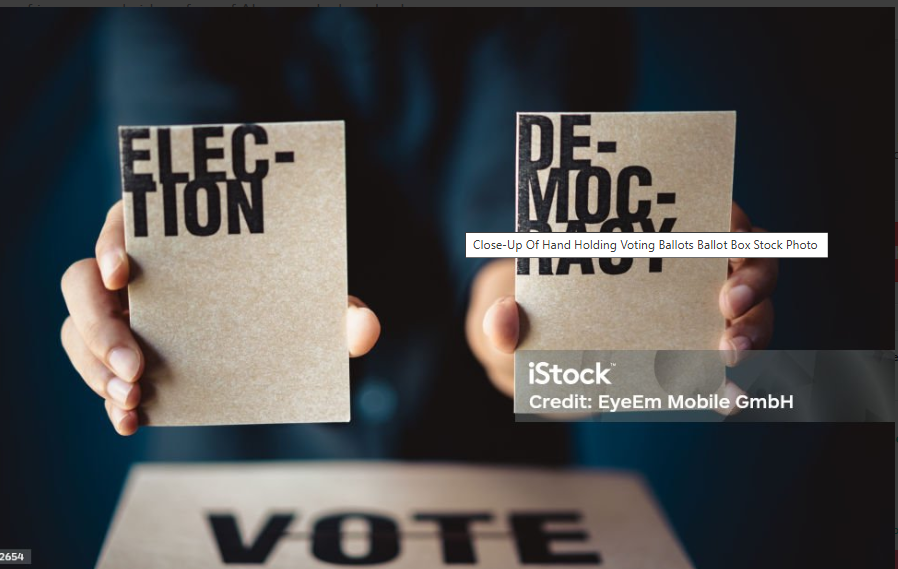Safeguarding Democracy in the Digital Age: Strengthening Election Integrity and Youth Engagement
In an era where democracy is under unprecedented stress, the integrity of elections has become a global concern. Free and fair elections are the bedrock of any democratic society. They ensure that governments remain accountable to the people, and that citizens have the power to shape their future. However, with the rise of digital technologies, new-age threats like cybersecurity breaches, misinformation campaigns, and foreign influence have made the electoral process more vulnerable than ever.
The question is no longer just about casting a vote — it’s about ensuring that every vote is protected, every voice is heard, and every outcome is legitimate. At a time when democratic institutions are being questioned, it becomes crucial to double down on efforts to safeguard electoral systems and reinforce public trust in the democratic process.
The Growing Threat Landscape
Elections are no longer just local or national affairs — they are targets in the global battlefield of information warfare. Sophisticated cyberattacks aimed at voter databases, election management systems, and voting infrastructure are becoming more frequent. State and non-state actors are deploying advanced technologies to infiltrate systems, manipulate narratives, and sow discord.
Misinformation and disinformation campaigns — particularly on social media — are also eroding public confidence. From fake news to deepfakes, voters are constantly exposed to distorted narratives that can influence decision-making, polarize communities, and cast doubt on the legitimacy of election results. The threat is not just technological; it is deeply psychological and societal.
Cybersecurity: The First Line of Defense
To counter these threats, cybersecurity must be at the forefront of electoral reform. Governments around the world are adopting sophisticated tools and strategies to secure voting systems, including:
End-to-end encryption of voter information and ballot data
Multi-factor authentication and access controls for election officials
Regular audits and penetration testing to identify vulnerabilities
Blockchain-based voting solutions to ensure transparency and verifiability
However, technology alone cannot secure democracy. It requires constant vigilance, skilled professionals, and robust policy frameworks to ensure that electoral systems remain resilient.
Combating Misinformation: A Collective Responsibility
While technical solutions can safeguard systems, combating misinformation requires a societal response. Media literacy programs are essential to help citizens, especially youth, differentiate between credible information and propaganda. Social media platforms must also be held accountable to detect and take down false information swiftly.
Efforts to promote transparency, fact-checking, and public awareness campaigns are key. For instance:
Real-time fact-checking during debates and political broadcasts
Clear communication from election commissions and independent bodies
Monitoring tools that flag coordinated disinformation campaigns
Collaborations with civil society and journalists to disseminate accurate information
Building a well-informed electorate is the most sustainable solution to the misinformation crisis.
International Cooperation: Democracy Knows No Borders
Election interference is a transnational threat. Thus, defending democracy requires international cooperation. Countries must share best practices, intelligence, and technological solutions to protect each other’s electoral processes.
Organizations like the United Nations, European Union, and civil society coalitions are already working toward building global standards for election security and transparency. Cross-border collaboration can also help track and block malicious actors, from troll farms to cybercriminals.
When countries unite to protect democratic norms, it sends a powerful message — that democracy will not be undermined, and that people’s voices will prevail over manipulation.
Transparency and Trust: The Core of Electoral Reform
Transparency is essential for trust. Citizens need to know that their votes are counted accurately, and that results are credible. To enhance transparency:
Election commissions must publish detailed reports of results, audits, and procedures.
Voter registration systems should be open to verification.
Independent observers should be given access to polling stations and counting centers.
Polling technologies must be explainable and accountable to the public.
Participatory reforms, like involving citizens in audits and feedback processes, also help restore faith in the system.
Empowering the Youth: Democracy’s Greatest Stakeholders
Youth are not just voters — they are leaders of tomorrow. Engaging young people in conversations around democracy, civic responsibility, and digital literacy is crucial. They are the most active demographic on digital platforms, making them both targets and potential defenders against misinformation.
Programs that empower youth with the knowledge and tools to critically assess information, participate in civic activities, and advocate for fair elections are essential. Educational institutions, NGOs, and governments must invest in:
Youth-led workshops on democracy and digital safety
Internship and fellowship programs in governance and public policy
Debates, simulations, and model elections in schools and colleges
Social media campaigns led by young influencers to promote election participation
By equipping youth with civic knowledge, we prepare them to be defenders of democratic ideals in a rapidly changing world.
A Call to Action: Join the Movement
Preserving the essence of democracy is a shared responsibility. Governments, institutions, civil society, media, and citizens all have a role to play in protecting electoral integrity. But beyond that, it’s about building a culture where democracy thrives — a culture where every individual feels their voice matters.
Our latest newsletter delves deep into this critical conversation. We explore the threats facing elections globally, the technological and policy-based solutions being adopted, and how citizens — especially the youth — can become active guardians of democracy.
This is not just about the next election. It’s about the future of democratic governance, freedom, and equality.
We invite you to read, reflect, and act. Engage in discussions. Educate those around you. Challenge disinformation. Volunteer in election programs. And most importantly, vote with awareness and confidence.
Be Informed. Stay Engaged. Empower Others.
At the heart of our mission is a belief: that informed citizens create resilient democracies. That when empowered with knowledge, people — especially the youth — can shape policies, uphold values, and drive positive change.
Through newsletters, community outreach, and partnerships, we aim to create an ecosystem where young minds become active participants in democratic processes — not just during election season, but throughout their lives.
Let’s commit to protecting the democratic values we cherish. Let’s work together for a future where democracy is not just an ideal, but a lived reality — fair, transparent, and inclusive.
🗳️ Subscribe now to stay updated on initiatives, insights, and stories that matter.
🔗 Subscribe on LinkedIn
Together, let’s safeguard democracy and empower generations to come.









